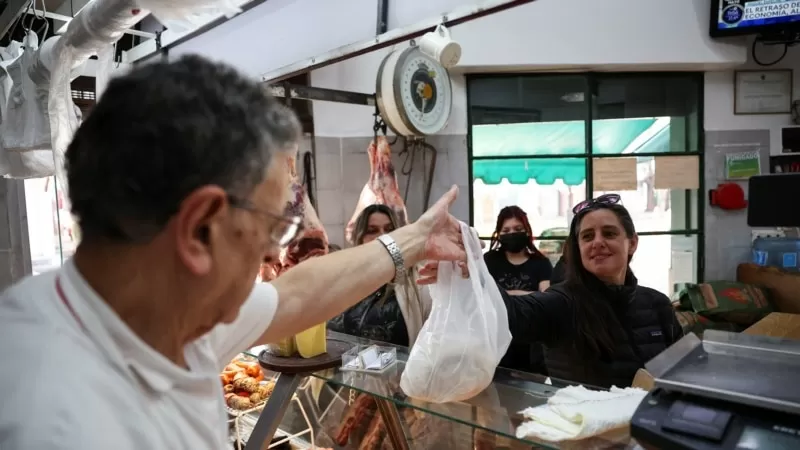BUENOS AIRES – Argentina’s economy has been hit hard by triple-digit inflation, one of the highest in the world. While there are signs of a slowdown, this offers little relief for workers who have seen their salaries remain stagnant while the cost of living continues to rise. This has left many feeling overwhelmed and struggling to keep up with the rising prices.
University professor Daniel Vazquez, while shopping in Buenos Aires, expressed his frustration, saying, “We’re losing track of what’s expensive and what’s cheap. Prices keep going up and the only thing that isn’t going up is salaries.” He went on to highlight the alarming gap between rising prices and stagnant salaries, which is causing financial strain for many.
The latest data from the national statistics agency shows that while annualized inflation in September was still at a high of 209%, the month-on-month price hikes have slowed down to their lowest level since late 2021 at 3.5%. This is in line with the predictions of analysts, who believe that inflation will end 2024 at 124%. While this is a positive sign, it is not enough to provide immediate relief to the struggling workers.
The current libertarian government, led by President Javier Milei, has implemented tough austerity measures to combat inflation. This includes cutting subsidies to sectors such as energy and transportation, as well as reducing the size of the public sector by closing offices and trimming jobs. President Milei believes that this approach will lead to genuine and long-lasting results in fighting inflation, but it has also caused a prolonged recession and a surge in poverty rates to around 53%.
Computer programmer Ivan Cortesi, 30, shared his experience of the rising costs, saying, “This past month there has been a significant increase in all utilities.” While food prices have remained similar to last month, utility costs have risen significantly, putting a strain on the already stretched budgets of many households.
According to the statistics agency, rents, as well as water, power, and gas prices, have led the monthly inflation, rising by over 7%. This is followed by a 6% increase in clothing and shoes, and a 4% increase in education costs. While food prices have only increased by 2% from last month, they have more than tripled since last year. Housing and utility costs have nearly quadrupled, and other essential items such as cigarettes, alcohol, healthcare, transportation, and communication all show annual inflation rates well above 200%.
President Milei has also devalued the local currency since taking office in December, which has had a significant impact on informal workers, civil servants, pensioners, doctors, and teachers. The recent failure of Argentina’s Congress to overturn Milei’s veto of a law that would have increased university spending in line with inflation has led to mass protests by students and university workers. However, President Milei remains firm in his stance and has vowed to veto any law that threatens the country’s fiscal balance.
While the current situation may seem daunting, there is hope for a positive change in the future. The government’s efforts to combat inflation, although tough, are necessary and have shown some positive results. As the inflation rate continues to slow down, there is a possibility for salaries to catch up and for the cost of living to become more manageable. It is a challenging time for the people of Argentina, but with determination and perseverance, the country can overcome this economic crisis.


